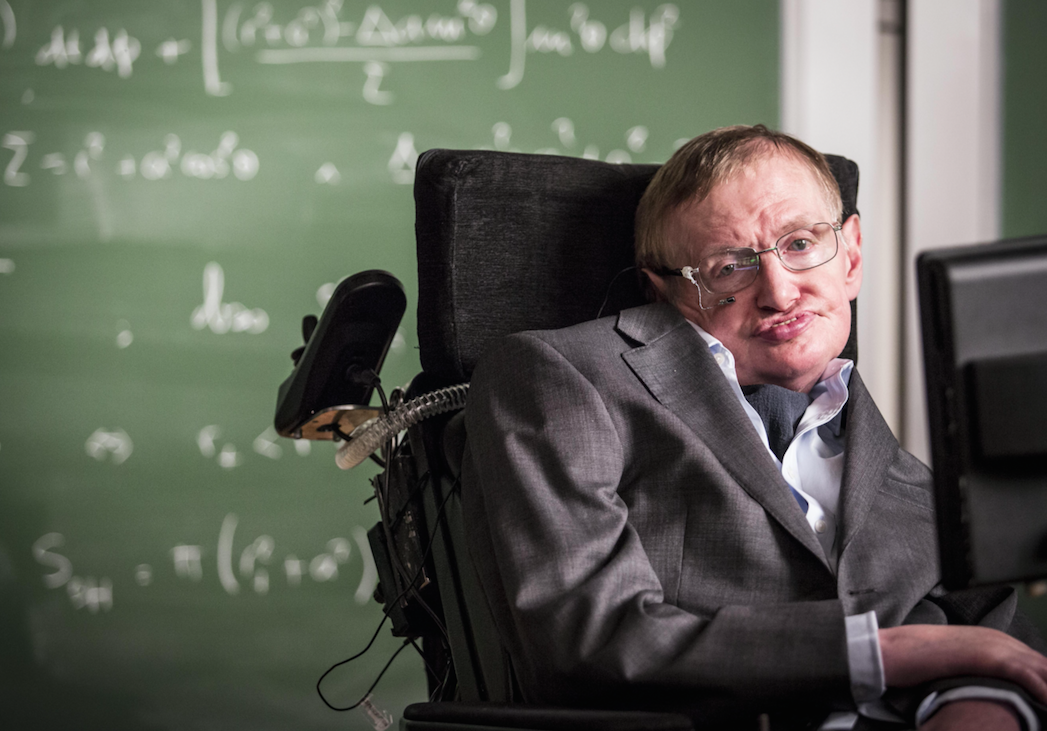The remarkable life of Stephen Hawking: A brief history of his time

Stephen Hawking liked to defy the odds.
The physicist and cosmologist, who died on Wednesday at the age of 76, was told by doctors he wouldn’t reach his mid-20s.
But more than 50 years later, the world is only now mourning his loss and celebrating his remarkable life.
Stephen William Hawking was born in Oxford on January 8, 1942 and grew up in London and St Albans.
He had a difficult time at the local public school and was persecuted as a “swot” who was more interested in jazz, classical music and debating than sport and pop.
Although not top of the class, he was good at maths and “chaotically enthusiastic in chemistry”.
He went on to achieve a first-class degree in physics at Oxford University.
MOST POPULAR TODAY ON YAHOO
Theresa May says ‘highly likely’ Russia poisoned spy in Salisbury
School run parent refuses to move Mercedes after parking in front of a fire station
Man faces jail for choking woman, 20, to death during sex after they met at a bus stop
Miraculous survival of commuter pushed in front of Tube by a psychiatric patient
Porn star Stormy Daniels offers to pay back $130k she was paid to keep quiet about Trump ‘affair’
But while at Cambridge University carrying out postgraduate research in cosmology, aged 22, he was diagnosed with a rare form of motor neurone disease.
He was about to marry his first wife, Jane, in 1964 when doctors told him he wouldn’t live for more than two or three years. But the couple would on to have three children.
After a painful period coming to terms with his condition, Prof Hawking threw himself into his work.
At one Royal Society meeting, the still-unknown Hawking interrupted a lecture by renowned astrophysicist Sir Fred Hoyle, then at the pinnacle of his career, to inform him that he had made a mistake.
An irritated Sir Fred asked how Hawking presumed to know that his calculations were wrong. Hawking replied: “Because I’ve worked them out in my head.”


Despite being wheelchair-bound, almost completely paralysed and unable to speak except through his trademark voice synthesiser, he wrote a plethora of scientific papers that earned him comparisons with Albert Einstein and Sir Isaac Newton.
His 1988 book, A Brief History of Time, sold more than 10 million copies, although Prof Hawking was aware it became known as “the most popular book never read”.
He was best known for his work on black holes, the mysterious infinitely dense regions of compressed matter where the normal laws of physics break down, which dominated the whole of his academic life.
Prof Hawking’s crowning achievement was his prediction in the 1970s that black holes can emit energy, despite the classical view that nothing – not even light – can escape their gravity.
Hawking Radiation, based on mathematical concepts arising from quantum mechanics, the branch of science that deals with the weird world of sub-atomic particles, eventually causes black holes to “evaporate” and vanish, according to the theory.
Had the existence of Hawking Radiation been proved by astronomers or physicists, it would almost certainly have earned Prof Hawking a Nobel Prize.

Away from his research, Prof Hawking was known for his sense of humour – he openly embraced pop culture, appearing in TV show The Simpsons, starring in Star Trek and providing the voice-over for a British Telecom commercial that was later sampled on rock band Pink Floyd’s The Division Bell album.
On one wall of his office at Cambridge University was a clock depicting Homer Simpson, whose theory of a “doughnut-shaped universe” he threatened to steal in an episode of the cartoon show. He is said to have glared at the clock whenever a visitor was late.
His rise to fame and relationship with his first wife, Jane, was dramatised in a 2014 film, The Theory Of Everything, in which Eddie Redmayne put in an Oscar-winning performance as the physicist battling with a devastating illness.
He booked a seat on Sir Richard Branson’s Virgin Galactic sub-orbital space plane and rehearsed for the trip by floating inside a steep-diving Nasa aircraft – dubbed the “vomit comet” – used to simulate weightlessness.


In February 1990, he left Jane, his wife of 25 years, to set up home with one of his nurses, Elaine Mason. The couple married in September 1995 but divorced in 2006.
He may have been one of the world’s most eminent scientists but he said one thing remained a mystery to him – women.
When asked by New Scientist magazine in 2012 what he thinks about most during the day, he said: “Women. They are a complete mystery.”
Throughout his career Prof Hawking was showered with honorary degrees, medals, awards and prizes, and in 1982 he was made a CBE.

But he also ruffled a few feathers within the scientific establishment with statements about the existence of extraterrestrials, time travel, and the creation of humans through genetic engineering.
He has also predicted the end of humanity, due to global warming, a new killer virus, or the impact of a large comet.
In 2015 he teamed up with Russian billionaire Yuri Milner who has launched a series of projects aimed at finding evidence of alien life.
The decade-long Breakthrough Listen initiative aims to step up the Search for Extraterrestrial Intelligence (Seti) by listening out for alien signals with more sensitivity than ever before.


